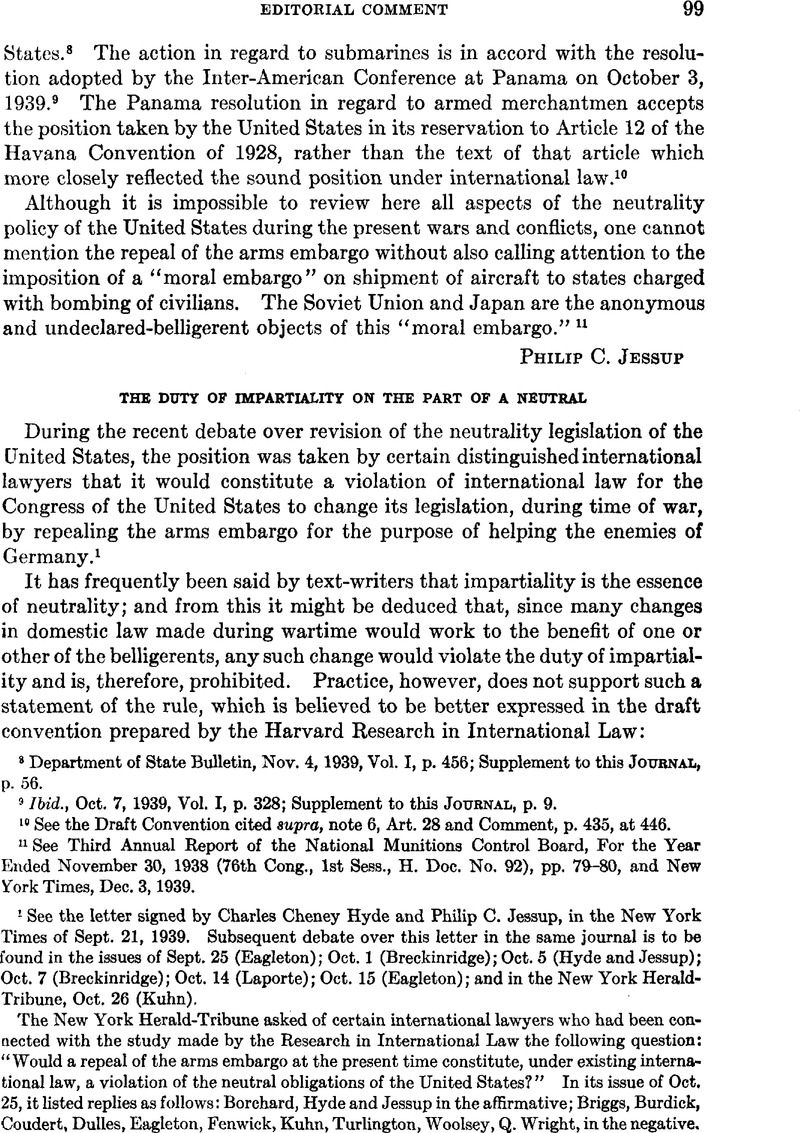Published online by Cambridge University Press: 12 April 2017

1 See the letter signed by Charles Cheney Hyde and Philip C. Jessup, in the New York Times of Sept. 21, 1939. Subsequent debate over this letter in the same journal is to be found in the issues of Sept. 25 (Eagleton); Oct. 1 (Breckinridge); Oct. 5 (Hyde and Jessup); Oct. 7 (Breckinridge); Oct. 14 (Laporte); Oct. 15 (Eagleton); and in the New York Herald-Tribune, Oct. 26 (Kuhn).
The New York Herald-Tribune asked of certain international lawyers who had been connected with the study made by the Research in International Law the following question: “Would a repeal of the arms embargo at the present time constitute, under existing international law, a violation of the neutral obligations of the United States? “ In its issue of Oct. 25, it listed replies as follows: Borchard, Hyde and Jessup in the affirmative; Briggs, Burdick, Coudert, Dulles, Eagleton, Fenwick, Kuhn, Turlington, Woolsey, Q. Wright, in the negative.
2 This Journal, Supp., Vol. 33 (July, 1939), p. 316, Article 13.
3 See the argument upon this point of Ryan, James W., in Congressional Record, Vol. 85, pp. 585–589, Oct. 11, 1939 Google Scholar.
4 Art. 9 of the Fifth Hague Convention of 1907: “Every measure of restriction or prohibition taken by a neutral power . . . must be impartially applied by it to both belligerents.” Note also the Preamble and Art. 9 of the Thirteenth Hague Convention of 1907, which speak of the duty to apply impartially these rules——i.e., certain specific rules therein stated. To the same effect Art. 9 of the code of the International Law Association, 1928. These statements do not lay down a general rule of impartiality; they require impartiality in the application of certain designated and specific rules.
5 Draft Convention on Rights and Duties of Neutral States in Naval and Aerial War, this Journal, Supp., Vol. 33 (July, 1939), p. 318.